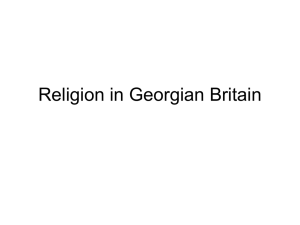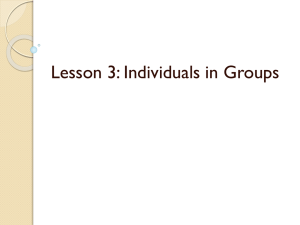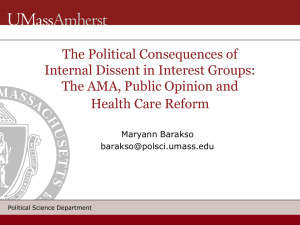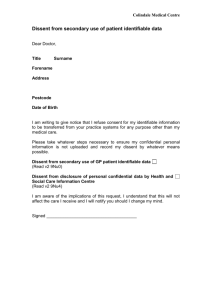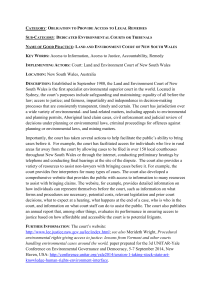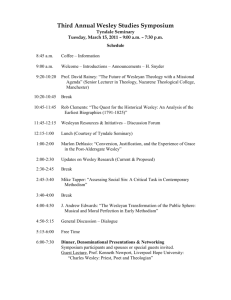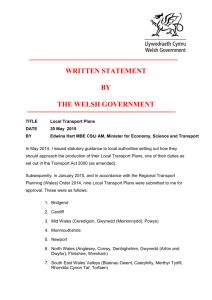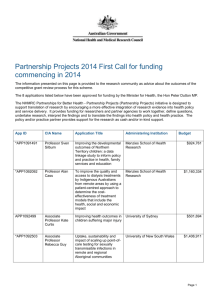5HUM0271 week 10: Religion in an Age of Dissent Basic definitions
advertisement
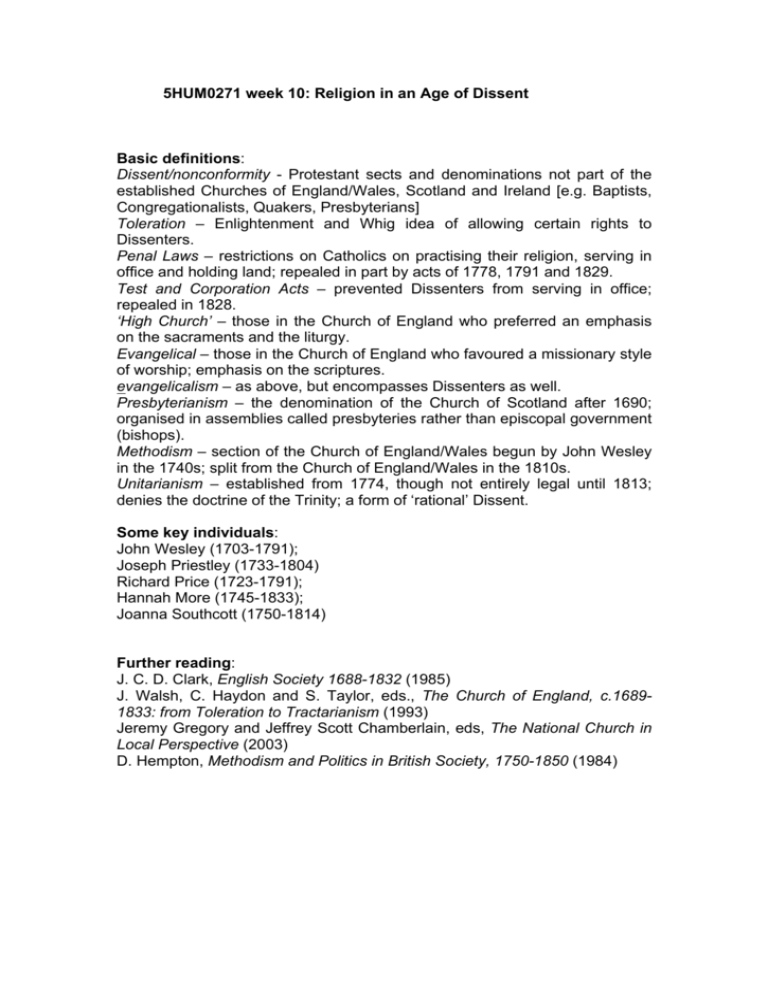
5HUM0271 week 10: Religion in an Age of Dissent Basic definitions: Dissent/nonconformity - Protestant sects and denominations not part of the established Churches of England/Wales, Scotland and Ireland [e.g. Baptists, Congregationalists, Quakers, Presbyterians] Toleration – Enlightenment and Whig idea of allowing certain rights to Dissenters. Penal Laws – restrictions on Catholics on practising their religion, serving in office and holding land; repealed in part by acts of 1778, 1791 and 1829. Test and Corporation Acts – prevented Dissenters from serving in office; repealed in 1828. ‘High Church’ – those in the Church of England who preferred an emphasis on the sacraments and the liturgy. Evangelical – those in the Church of England who favoured a missionary style of worship; emphasis on the scriptures. evangelicalism – as above, but encompasses Dissenters as well. Presbyterianism – the denomination of the Church of Scotland after 1690; organised in assemblies called presbyteries rather than episcopal government (bishops). Methodism – section of the Church of England/Wales begun by John Wesley in the 1740s; split from the Church of England/Wales in the 1810s. Unitarianism – established from 1774, though not entirely legal until 1813; denies the doctrine of the Trinity; a form of ‘rational’ Dissent. Some key individuals: John Wesley (1703-1791); Joseph Priestley (1733-1804) Richard Price (1723-1791); Hannah More (1745-1833); Joanna Southcott (1750-1814) Further reading: J. C. D. Clark, English Society 1688-1832 (1985) J. Walsh, C. Haydon and S. Taylor, eds., The Church of England, c.16891833: from Toleration to Tractarianism (1993) Jeremy Gregory and Jeffrey Scott Chamberlain, eds, The National Church in Local Perspective (2003) D. Hempton, Methodism and Politics in British Society, 1750-1850 (1984)
